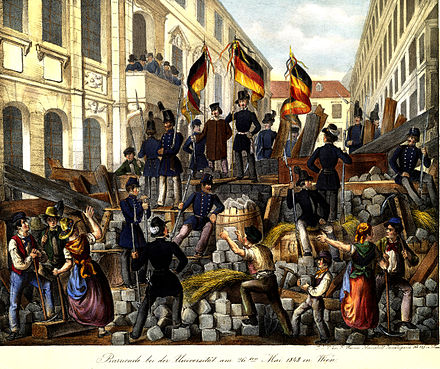The discourse surrounding nationalism has ascended to the forefront of global conversations, unveiling an intricate tapestry of identities, allegiances, and socio-political paradigms. In this tempestuous era, the significance of nationalism transcends mere citizenship and territoriality; it encompasses profound questions of belonging, unity, and the collective human experience. Within this milieu, the Bahá’í teachings present a transformative lens through which to examine nationalism, inviting us to reconsider its implications in an age characterized by division and conflict.
At the crux of Bahá’í thought is the foundational principle of the oneness of humanity. This assertion challenges traditional nationalist narratives that often exalt ethnic or national identities over a broader human fellowship. Bahá’í teachings advocate for a perspective that recognizes the inherent interdependence of all people. This paradigm shift fosters a collective consciousness that prioritizes global solidarity over parochial loyalties, prompting a re-evaluation of nationalism as a phenomenon tethered to antiquated notions of exclusivity and separateness.
To navigate the complexities of nationalism in contemporary society, one must delve into its historical underpinnings. Nationalism, as a conceptual framework, emerged as a response to various sociopolitical pressures, catalyzing movements for self-determination and independence throughout history. Yet, as nations evolved, the potential for nationalism to devolve into xenophobia, intolerance, and conflict has underscored the dual-edged nature of this ideology. The Bahá’í approach emphasizes the necessity of transcending divisive nationalist sentiments, proposing a more harmonious synthesis of diverse identities.
Central to this proposition is the concept of “unity in diversity.” This tenet implores individuals to celebrate their unique cultural heritages while simultaneously recognizing their shared humanity. The Bahá’í Faith advocates for a global vision wherein cultural pluralism is not merely tolerated but embraced as a catalyst for social cohesion and progress. This expansive view of identity calls upon adherents to cultivate an appreciation for the rich tapestry of human expression and experience, thus transforming nationalism from a divisive force into a unifying one.
The contemporary landscape reveals an alarming trend of rising nationalism, often characterized by pernicious forms of populism that exploit societal anxieties and grievances. In these turbulent times, the Bahá’í teachings offer alternative pathways to navigate such challenges. Reimagining nationalism entails harnessing the strengths of collective identity without succumbing to its exclusionary tendencies. This vision proposes a new construct of national identity—one that harmonizes local belonging with global citizenship. The Bahá’í perspective endorses a framework wherein loyalty to one’s nation coexists with an unwavering commitment to the well-being of humanity.
Moreover, Bahá’í teachings underscore the transformative power of education as a vehicle for cultivating a more inclusive nationalism. Education serves as a catalyst for fostering an understanding of global interconnectivity and empathy. By nurturing critical thinking and cultural awareness, individuals become equipped to engage in dialogues that challenge narrow nationalist ideologies. This elevation of consciousness enables communities to confront biases and prejudices, laying the groundwork for a more compassionate and unified society.
The imperative for dialogue becomes increasingly salient as we grapple with the repercussions of nationalist movements across the globe. Engaging in thoughtful discourse that acknowledges varied perspectives is essential for dismantling the barriers erected by rigid nationalistic fervor. The Bahá’í teachings call for this dialogue to be enriched by the values of kindness, tolerance, and mutual respect. Such an approach not only fosters harmonious coexistence but also empowers individuals to confront contentious issues collaboratively.
Additionally, the Bahá’í framework of service to humanity propels a proactive engagement with the tenets of nationalism. This service-oriented ethos inspires individuals to channel their national pride into constructive actions that uplift their communities and promote the common good. Through initiatives that address social inequalities, support environmental sustainability, and foster intercultural exchange, individuals reaffirm their commitment to humanity while honoring their national affiliations. In this way, nationalism becomes a vehicle for positive transformation rather than a harbinger of discord.
In reconceptualizing nationalism through the lens of Bahá’í principles, we are beckoned to envision a future characterized by collaborative governance, inclusive policies, and global stewardship. The challenge lies not in obliterating national identities but in harmonizing them within the greater framework of global unity. This synthesis empowers nations to assert their unique identities while simultaneously contributing to the collective advancement of humanity.
As we contemplate the question of nationalism in turbulent times, the Bahá’í teachings serve as a guidepost, illuminating the path toward a more equitable and peaceful world. By embracing the tenets of unity, diversity, and service, we can transcend the constraints of exclusive nationalism and nurture a more profound sense of belonging—one that recognizes our shared aspirations and interconnected destinies. The call to action is clear: to reframe our understanding of nationalism, to elevate our perspectives, and to foster a climate of compassion amid the tumult of contemporary society. In doing so, we not only entertain the possibility of a transformed nationalism but ignite the potential for a truly united global community.
